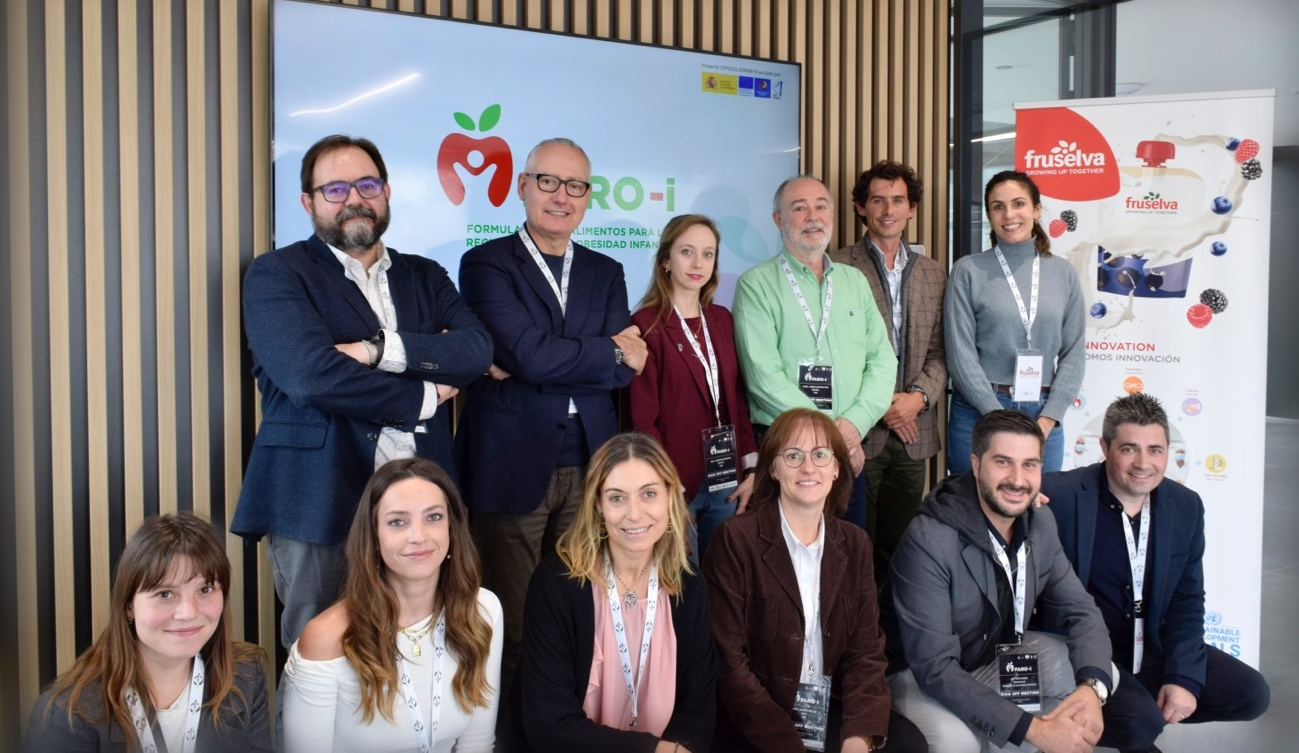
Functional foods against childhood obesity
Childhood obesity has reached alarming levels in recent decades, becoming one of the main health concerns for children. According to the World Health Organization (WHO), in 2016 it was estimated that there were approximately 41 million children under the age of five with overweight worldwide. In Spain, according to data from the Food Safety and Nutrition Agency (AESAN), four out of every five children are overweight, a figure that places Spain among the countries in the European Union with the highest prevalence of childhood obesity and overweight.
Researchers from the University of Barcelona (UB) are involved in a project, led by the company Global Fruselva, to develop and evaluate, through robust scientific evidence, ingredients of natural and plant origin for the production of new functional foods to reduce and control childhood overweight.
“Infancy and the early years of children’s lives (before the age of six) are critical periods that determine future obesity. Thus, an accelerated rate of body weight gain and overweight during the first year of life and in early childhood increase the likelihood of developing obesity and associated diseases in adulthood, such as type 2 diabetes, cardiovascular conditions and mental health problems. It is in this context that the FARO-i project becomes particularly relevant, as it seeks to address this challenge in an effective and sustainable way,” explain Silvia Canudas and Joana Relat, lecturers at the Faculty of Pharmacy and Food Sciences, who are leading the UB’s contribution to a consortium that also includes the foodtech company Ingredialia and the University of the Balearic Islands (UIB).
Satiating and anti-obesogenic effects
Functional foods can be a major tool in the fight against various diseases. In this sense, according to these researchers, many scientific studies validate the use of these types of products and their bioactive compounds to prevent obesity. “Functional foods are designed to provide health benefits beyond basic nutrition, such as reducing inflammation, increasing immunity and improving digestive health, and it is important, for their correct definition, to know their impact on health and the mechanisms associated with their effects,” explain Canudas and Relat, who are also part of the Nutritional Cell Signalling group at the UB.
Over the three years of the project, mixtures of fruits and/or vegetables will be designed and evaluated in combination with different sources of naturally occurring bioactive compounds to address childhood overweight. This research will be carried out using two complementary approaches: on the one hand, searching for compounds with satiating effects, since, in the words of the researchers, “the feeling of satiety that persists after eating is an important factor in avoiding excessive caloric intake, which can lead to overweight and obesity”; and, on the other hand, incorporating anti-obesogenic effects.
The UB group will play a decisive role here, as the project will build on previous results obtained by this research team, which revealed that certain fruits, vegetables, and pulses contain bioactive compounds with positive effects on health that cause changes in the metabolic profile of consumers.
Validation in animal models and in a pilot study in infants
One of the key elements of the consortium is the need to scientifically validate the effects of the products identified during the different research phases. “Understanding the communication between bioactive dietary compounds and our genome and their impact on health and well-being requires studying the molecular mechanisms whereby nutrients and other bioactive food components exert beneficial effects and affect health status,” the researchers stress.
In this regard, UB experts also point out that, although there are parapharmaceutical products in the market aimed at weight loss, “they often do not have solid scientific evidence behind them. For this reason, generating knowledge in order to create products that are child-friendly, but whose effectiveness in the medium and long term is backed by solid scientific evidence, is a good strategy for tackling this problem”.
The analysis of the mechanism of action and validation of the new compounds will be carried out, first, through in vivo experimental studies in a rodent model of diet-induced obesity. Subsequently, the selected best performing formulations will be evaluated in a pilot study with infants.
Commitment to sustainability
Finally, another key element of the project is the prioritisation of the most sustainable ingredients and products, as proximity and circular economy will be taken into account throughout the process.
The project, with reference number SCPP2200C009688, has been awarded 143,233.75 euros within the framework of the 2022 call for public-private collaboration projects under the Spanish National Plan for Scientific and Technical Research and Innovation 2021-2023, as part of the Plan for Recovery, Transformation and Resilience.

